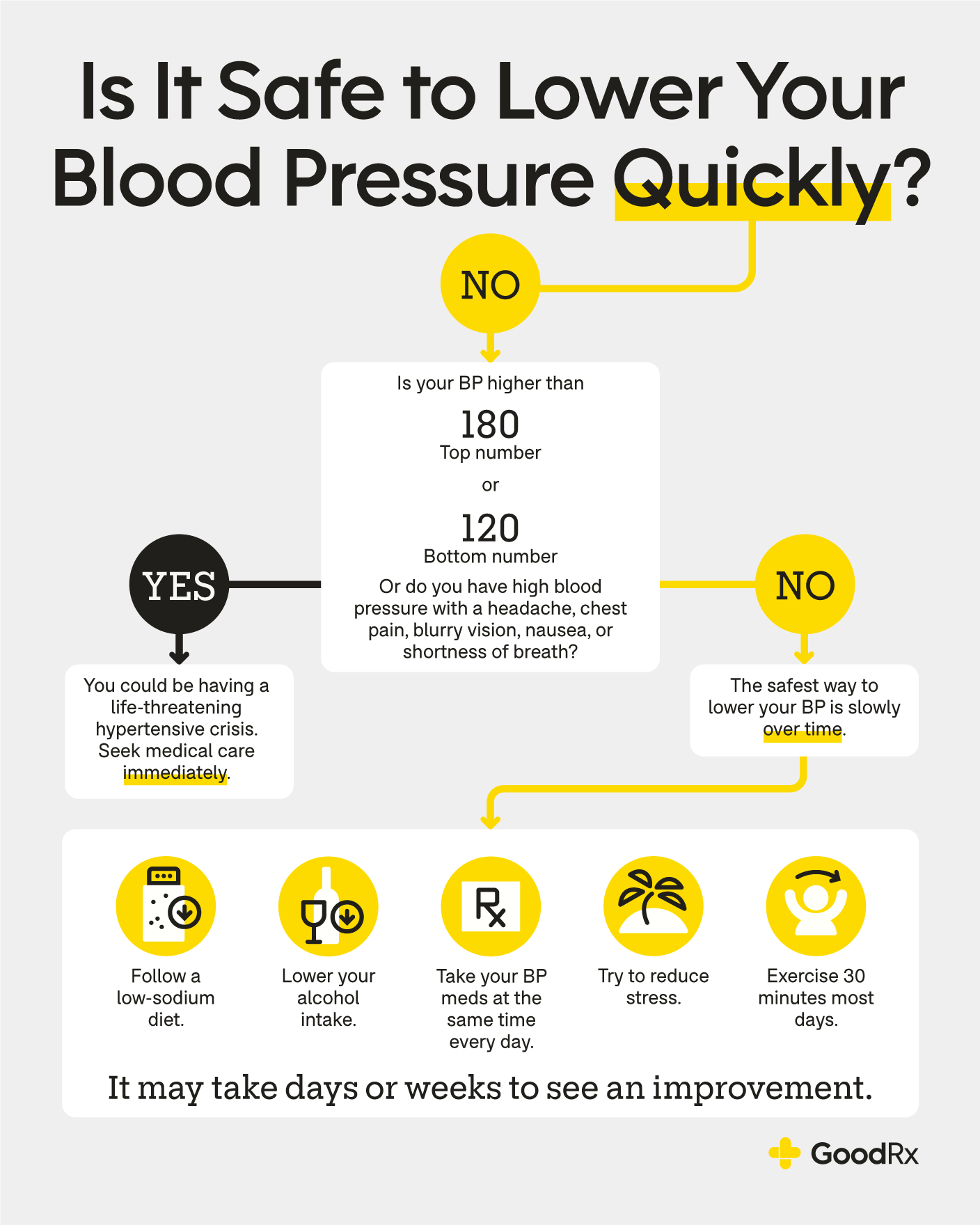
If you’ve ever wondered how to reduce your blood pressure without relying on medication, you’re not alone. Many people are seeking natural ways to keep their blood pressure in check and maintain a healthy lifestyle. In this article, we’ll explore some effective strategies and habits that can help you lower your blood pressure naturally, allowing you to take control of your health in a holistic and sustainable way. So, let’s dive into these practical tips and discover how you can promote a healthier cardiovascular system.
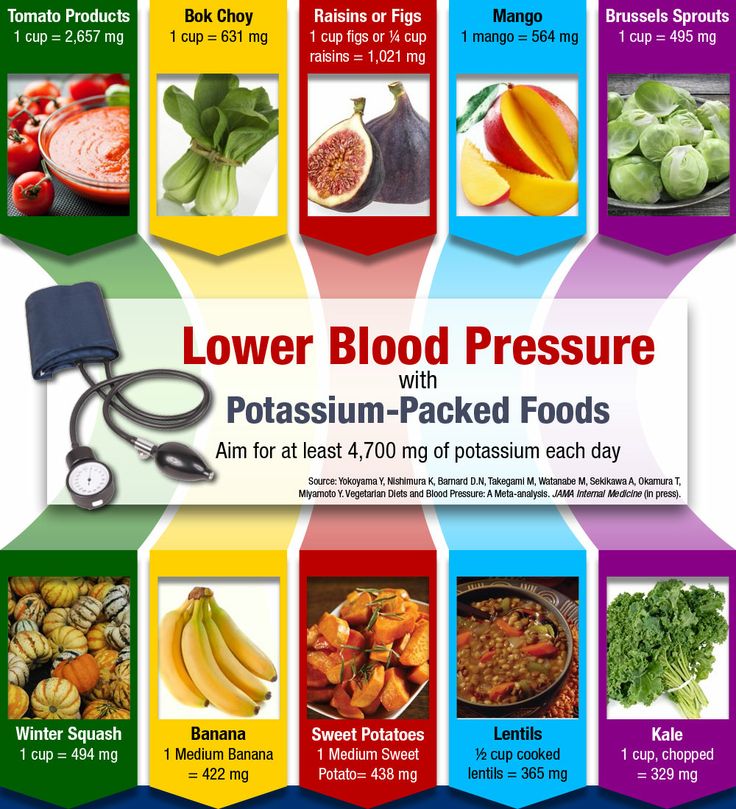
This image is property of www.pcrm.org.
Lifestyle Changes
Maintain a Healthy Weight
Maintaining a healthy weight is essential for overall well-being and plays a crucial role in managing blood pressure. If you are overweight or obese, losing even a small percentage of your body weight can have a significant impact on your blood pressure levels. Incorporating regular physical activity and adopting a balanced diet will not only help you shed those extra pounds but also improve your cardiovascular health.
Adopt a Balanced Diet
Eating a balanced diet is key to managing blood pressure naturally. Focus on incorporating whole grains, fruits, vegetables, lean proteins, and healthy fats into your meals. Avoid processed foods, as they tend to be high in sodium and unhealthy fats. Opt for natural and unprocessed foods whenever possible, as they are packed with essential nutrients and have a positive impact on your blood pressure and overall health.
Reduce Sodium Intake
Excessive sodium consumption can contribute to high blood pressure. Be mindful of your salt intake and consider reducing the amount of sodium you add to your meals. Instead of reaching for the salt shaker, try using herbs, spices, or lemon juice to enhance the flavor of your dishes. Additionally, limit your consumption of processed foods, as they often contain high levels of sodium.
Increase Potassium Intake
Potassium-rich foods can help regulate blood pressure by counteracting the effects of sodium. Aim to incorporate potassium-rich foods such as bananas, avocados, spinach, sweet potatoes, and tomatoes into your diet. These foods can help lower your blood pressure naturally and also provide a range of other health benefits.
Limit Alcohol Consumption
Excessive alcohol consumption can contribute to high blood pressure and other health issues. If you choose to drink alcohol, do so in moderation. The American Heart Association recommends limiting alcohol intake to one drink per day for women and two drinks per day for men. Remember, moderation is key when it comes to alcohol consumption and maintaining a healthy blood pressure.
Quit Smoking
Smoking not only harms your lungs but also has detrimental effects on your cardiovascular system. The chemicals in tobacco smoke can damage your blood vessels and increase your risk of developing high blood pressure. Quitting smoking is one of the best lifestyle changes you can make for your overall health, including your blood pressure. Seek support from healthcare professionals or support groups to help you successfully quit smoking.
Engage in Regular Physical Activity
Regular physical activity is vital for maintaining a healthy blood pressure. Engaging in aerobic exercises such as brisk walking, jogging, cycling, or swimming can help strengthen your heart and improve blood flow. Aim for at least 150 minutes of moderate-intensity exercise or 75 minutes of vigorous-intensity exercise each week. Additionally, incorporating strength training exercises into your routine can further enhance your cardiovascular health.
Reduce Stress Levels
Chronic stress can contribute to high blood pressure. Finding healthy ways to manage and reduce stress can have a positive impact on your blood pressure levels. Consider incorporating relaxation techniques such as deep breathing exercises, practicing mindfulness, engaging in yoga or meditation, and exploring activities that bring you joy and help you unwind. Take time for self-care and prioritize activities that promote relaxation and stress relief.
Dietary Approaches
Follow the DASH Diet
The DASH (Dietary Approaches to Stop Hypertension) diet is specifically designed to help lower blood pressure. It emphasizes consuming fruits, vegetables, whole grains, lean proteins, and low-fat dairy products while limiting sodium, unhealthy fats, and added sugars. The DASH diet has been proven to lower blood pressure and improve overall heart health. Consult with a registered dietitian to create a personalized DASH diet plan that suits your individual needs.
Consume Berries and Dark Chocolate
Berries such as strawberries, blueberries, and raspberries are not only delicious but also packed with antioxidants, vitamins, and minerals that promote heart health and help lower blood pressure. Dark chocolate, in moderation, can also be beneficial due to its high cocoa content, which contains flavanols that have been shown to improve blood vessel function and decrease blood pressure. Enjoy a handful of berries or a few squares of dark chocolate as part of a balanced diet.
Increase Intake of Omega-3 Fatty Acids
Omega-3 fatty acids, found in fatty fish like salmon, sardines, and mackerel, have been shown to have a positive impact on blood pressure. They help reduce inflammation, improve blood vessel function, and lower levels of triglycerides. If you’re not a fan of fish, consider incorporating omega-3 supplements into your diet. However, always consult with your doctor before starting any new supplement regimen.
Add Garlic and Herbs to Meals
Garlic has long been recognized for its potential benefits in lowering blood pressure. It contains compounds that can relax blood vessels and improve blood flow. Consider adding garlic to your meals or taking garlic extract/powder as a supplement. Additionally, incorporating herbs and spices such as basil, rosemary, oregano, and turmeric can not only enhance the flavor of your meals but also provide potential benefits for managing blood pressure.
Enjoy a Cup of Hibiscus Tea
Hibiscus tea has gained popularity for its potential blood pressure-lowering effects. Studies have shown that regularly consuming hibiscus tea may help lower blood pressure in individuals with hypertension. Its natural compounds act as diuretics and relax the blood vessels, contributing to the reduction of blood pressure. Enjoy a cup of hibiscus tea as part of a balanced diet and consult with your healthcare provider if you have any underlying health conditions or are taking medications.
Herbal Remedies
Consider Hawthorn
Hawthorn is an herb known for its potential cardiovascular benefits, including blood pressure management. It has been used traditionally to support heart health and improve blood circulation. Hawthorn supplements may help dilate blood vessels and enhance blood flow, thus contributing to lower blood pressure levels. However, it’s important to consult with a healthcare professional before incorporating any herbal remedies into your routine, especially if you are taking medications.
Try Garlic Extract or Powder
Garlic, as mentioned earlier, has shown potential benefits in managing blood pressure. If you don’t enjoy the taste of garlic or have difficulties incorporating it into your meals, you can try garlic extract or powder supplements. Talk to your doctor before adding any new supplements to your regimen, as they can interact with certain medications or have adverse effects.
Explore Hibiscus
In addition to enjoying hibiscus tea, hibiscus supplements are also available and may have blood pressure-lowering effects. Hibiscus supplements contain concentrated amounts of the plant’s compounds that contribute to its potential benefits. As with any herbal remedy or supplement, it’s important to consult with a healthcare professional before use, especially if you have any underlying health conditions or are taking medications.
Drink Green Tea
Green tea is known for its antioxidants and potential health benefits, including blood pressure management. It contains compounds that promote the relaxation of blood vessels and improve blood flow. Incorporating green tea into your daily routine can be a refreshing way to support cardiovascular health. However, it’s important to note that green tea contains caffeine, so monitor your intake if you are sensitive to caffeine or have been advised to limit your caffeine consumption.
Consume Flaxseed
Flaxseed is a versatile and nutrient-dense food that may have a positive impact on blood pressure. It is rich in omega-3 fatty acids, fiber, and lignans, which have been shown to contribute to heart health. Consider adding ground flaxseeds to your meals, smoothies, or yogurt to reap the potential benefits.
Supplements
Explore CoQ10
CoQ10 (Coenzyme Q10) is a naturally occurring antioxidant that plays a crucial role in energy production within cells. It has been studied for its potential benefits in managing hypertension. CoQ10 supplements may help lower blood pressure, although further research is needed to fully understand its effectiveness. Consult with a healthcare professional before starting any new supplements, as they can interact with certain medications or have side effects.
Consider Fish Oil
Fish oil supplements are rich in omega-3 fatty acids and have been shown to have potential benefits for heart health, including blood pressure management. Omega-3 fatty acids found in fish oil can help lower blood pressure, reduce inflammation, and improve overall cardiovascular health. However, always consult with your doctor before starting any new supplement regimen.
Try Magnesium Supplements
Magnesium is an essential mineral that plays a vital role in various bodily functions, including maintaining healthy blood pressure levels. Magnesium supplements may help relax blood vessels and improve blood flow, contributing to lower blood pressure. However, it’s important to note that magnesium supplements can interact with certain medications, so consult with your healthcare provider before starting any new supplement.
Take Fiber Supplements
Fiber plays an important role in maintaining a healthy cardiovascular system, including blood pressure management. Fiber supplements, such as psyllium husk or glucomannan, can help lower blood pressure by improving overall heart health and regulating digestion. However, it’s important to gradually introduce fiber supplements into your routine and increase your water intake to prevent any gastrointestinal discomfort.
Discuss Other Options with Your Doctor
There are several other supplements and natural remedies that claim to lower blood pressure. However, it’s crucial to consult with your doctor before adding any new supplements or herbal remedies to your routine, especially if you are taking medications or have underlying health conditions. Your doctor will be able to provide personalized advice and guidance based on your specific needs and medical history.
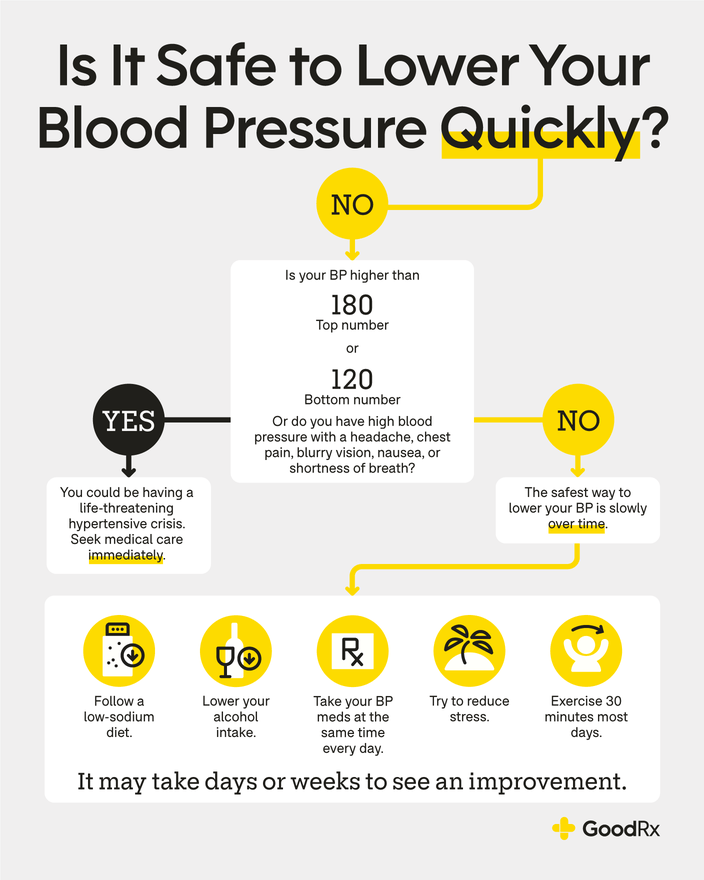
This image is property of www.grxstatic.com.
Exercise and Physical Activity
Engage in Aerobic Exercises
Aerobic exercises, also known as cardiovascular exercises, are an excellent way to lower blood pressure naturally. Activities such as brisk walking, jogging, cycling, swimming, or dancing can get your heart pumping, improve blood flow, and strengthen your cardiovascular system. Aim for at least 150 minutes of moderate-intensity aerobic exercise or 75 minutes of vigorous-intensity exercise per week.
Incorporate Strength Training
Strength training exercises, also known as resistance training, can be highly beneficial for managing blood pressure. Lifting weights, using resistance bands, or engaging in bodyweight exercises helps build lean muscle mass, which in turn can help lower blood pressure and improve overall cardiovascular health. Include strength training exercises at least two days a week, targeting all major muscle groups.
Practice Yoga
Yoga is a holistic practice that combines physical movement, breath control, and meditation. Regular practice of yoga has been shown to reduce blood pressure levels and promote relaxation and stress reduction. Various yoga poses, such as forward bends, gentle inversions, and breathing techniques, can help lower blood pressure and improve cardiovascular health. Join a yoga class or follow online tutorials to incorporate yoga into your routine.
Experiment with Tai Chi
Tai Chi is an ancient Chinese martial art that focuses on slow, flowing movements and deep breathing. It is often referred to as “meditation in motion” and has been shown to improve cardiovascular health and lower blood pressure. Tai Chi promotes relaxation, balance, and mindfulness, which are all beneficial for managing blood pressure. Look for Tai Chi classes or instructional videos to explore this gentle and low-impact exercise.
Consider Burst Training
Burst training, also known as high-intensity interval training (HIIT), involves short bursts of intense exercise followed by periods of rest or low-intensity exercise. This type of training can be highly effective for improving cardiovascular fitness and lowering blood pressure. Burst training stimulates the release of beneficial hormones and can create a significant impact on your blood pressure with shorter workout sessions. Consult with a fitness professional to design a burst training program that suits your fitness level and needs.
Stress Management
Practice Relaxation Techniques
Relaxation techniques such as deep breathing exercises, progressive muscle relaxation, and guided imagery can help lower blood pressure by promoting relaxation and reducing stress. Allocate time each day to engage in relaxation techniques that resonate with you. It can be as simple as sitting quietly, closing your eyes, and focusing on your breath. Find what works best for you and prioritize making relaxation a part of your daily routine.
Try Meditation
Meditation is a mindfulness practice that involves focusing your attention and eliminating the stream of thoughts that often contribute to stress and anxiety. Regular meditation practice has been shown to reduce blood pressure, improve cardiovascular health, and enhance overall well-being. There are various meditation techniques to explore, such as mindfulness meditation, transcendental meditation, or guided meditation. Find a technique that suits your preferences and commit to regular practice.
Learn Deep Breathing Exercises
Deep breathing exercises, also known as diaphragmatic breathing or belly breathing, can help induce a relaxation response in the body and lower blood pressure. Practice taking slow, deep breaths, focusing on expanding your diaphragm and filling your lungs with air. Deep breathing exercises can be done anytime and anywhere, making them a convenient tool for managing stress and promoting cardiovascular health.
Engage in Mindfulness Activities
Being present and fully engaged in the present moment can help reduce stress and promote relaxation. Engage in mindfulness activities such as mindful walking, mindful eating, or mindful journaling. Cultivating mindfulness allows you to shift your focus from worries and stressors, promoting a calmer state of mind and potentially leading to lower blood pressure levels.
Consider Biofeedback
Biofeedback is a technique that helps individuals gain control over their physiological responses, including blood pressure. It involves using electronic devices to monitor and provide feedback on specific bodily functions. By learning to regulate these functions, individuals can reduce stress and lower blood pressure. Consult with a healthcare professional or biofeedback therapist to explore this technique and learn how to incorporate it into your stress management routine.
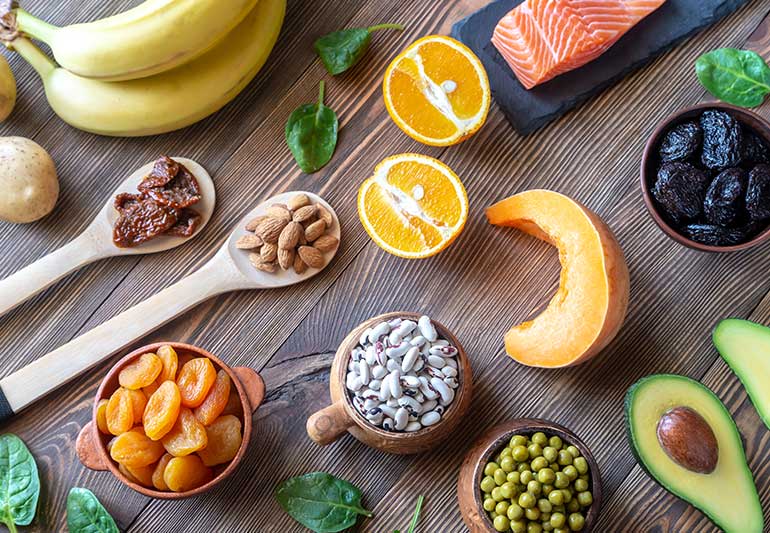
This image is property of health.clevelandclinic.org.
Sleep Quality
Establish a Regular Sleep Schedule
Having a regular sleep schedule can play a significant role in managing blood pressure. Aim to go to bed and wake up at the same time each day to establish a consistent sleep routine. Your body thrives on a natural sleep-wake cycle, and maintaining a regular schedule can improve your sleep quality and contribute to overall well-being.
Create a Sleep-Friendly Environment
Create a sleep-friendly environment in your bedroom to promote a restful night’s sleep. Ensure that your bedroom is dark, quiet, and at a comfortable temperature. Invest in a supportive mattress and pillows that suit your preferences. Limit distractions such as electronic devices, excessive noise, or bright lights that can interfere with your sleep quality.
Limit Exposure to Electronic Devices
The blue light emitted by electronic devices such as smartphones, tablets, and laptops can interfere with the production of melatonin, a hormone that regulates sleep. Limit your exposure to electronic devices, especially before bedtime. Establish a device-free period before sleep and engage in relaxing activities such as reading a book or taking a warm bath.
Avoid Stimulants Before Bed
Stimulants such as caffeine and nicotine can interfere with your sleep quality and disrupt your sleep patterns. Avoid consuming caffeine-containing drinks or foods, such as coffee, tea, chocolate, and energy drinks, in the evening. Additionally, quit smoking or avoid smoking close to bedtime to minimize the stimulating effects of nicotine.
Implement Relaxation Techniques
Incorporating relaxation techniques before bedtime can help prepare your body and mind for sleep. Engage in activities such as reading a book, practicing deep breathing, taking a warm bath, or listening to calming music. Find what works best for you and create a bedtime routine that promotes relaxation and a restful night’s sleep.
Reduce Caffeine
Monitor Your Caffeine Intake
Caffeine is a stimulant that can increase blood pressure and interfere with your sleep quality. Monitor your caffeine intake, including beverages and foods that contain caffeine. Be mindful of hidden sources of caffeine, such as certain medications, energy drinks, and chocolate. Keep track of your daily caffeine consumption and consider reducing it if you notice a link between caffeine and your blood pressure levels.
Gradually Reduce Consumption
If you consume caffeine regularly and want to lower your blood pressure naturally, consider gradually reducing your consumption. Abruptly discontinuing caffeine intake can lead to withdrawal symptoms such as headaches and irritability. Gradually reduce your caffeine intake over time and be aware of your body’s response to the changes.
Choose Non-Caffeinated Alternatives
Replace caffeinated beverages with non-caffeinated alternatives. Opt for herbal teas, caffeine-free versions of your favorite drinks, or water infused with fruits or herbs. Explore the wide variety of caffeine-free options available and find alternatives that suit your taste preferences and lifestyle.
Avoid Energy Drinks
Energy drinks often contain high levels of caffeine and other stimulants. Consuming energy drinks can lead to an increase in blood pressure and have negative effects on your overall health. Avoid relying on energy drinks as a source of energy and instead prioritize getting adequate rest, maintaining a balanced diet, and engaging in regular physical activity.
Consider Decaffeinated Options
If you enjoy the taste of coffee or tea but want to lower your caffeine intake, consider opting for decaffeinated versions. Decaffeinated coffee and tea undergo a process that removes most of the caffeine while retaining the flavor. However, it’s important to note that small amounts of caffeine may still be present, so it’s wise to monitor your intake if you are particularly sensitive to caffeine.
This image is property of www.bayhealth.org.
Hydration
Drink Sufficient Water
Proper hydration is crucial for maintaining optimal blood pressure levels. Make it a habit to drink sufficient water throughout the day. Dehydration can contribute to increased blood viscosity and potentially raise your blood pressure. Aim to drink at least eight glasses of water per day, or more if you engage in vigorous physical activity or live in a hot climate.
Limit Consumption of Sugary Drinks
Sugary drinks such as soda, fruit juices, and sweetened beverages can contribute to weight gain and increased blood pressure. Limit your consumption of sugary drinks and opt for healthier alternatives such as water, herbal teas, or infused water. If you find it difficult to give up sugary drinks entirely, gradually reduce your intake and focus on making healthier choices overall.
Avoid Excessive Alcohol
While moderate alcohol consumption may have some health benefits, excessive alcohol intake can increase blood pressure and contribute to other health issues. If you choose to drink alcohol, do so in moderation. The American Heart Association recommends limiting alcohol intake to one drink per day for women and two drinks per day for men.
Consume Herbal Teas
Herbal teas, such as chamomile, peppermint, or ginger tea, can be a hydrating and enjoyable way to lower blood pressure naturally. Some herbal teas have potential blood pressure-lowering effects, promote relaxation, and provide antioxidant benefits. Experiment with different herbal teas and find ones that suit your taste preferences and promote your overall well-being.
Monitor Your Fluid Intake
Monitoring your fluid intake is essential for maintaining proper hydration and managing blood pressure. Keep track of the amount of water and other fluids you consume throughout the day. Consider using a water bottle or a hydration tracking app to help you stay on top of your hydration goals. Being aware of your fluid intake can also help you identify any patterns or habits that may need adjustment.
Avoid Harmful Substances
Reduce Alcohol Consumption
Excessive alcohol consumption can have detrimental effects on your blood pressure levels. It can also lead to weight gain, liver damage, and other health issues. If you choose to drink alcohol, do so in moderation and be aware of the recommended guidelines. Talk to your healthcare provider if you have concerns about your alcohol consumption or need support in reducing your intake.
Quit Smoking
Smoking is a primary risk factor for high blood pressure and numerous other health conditions. The chemicals in tobacco smoke can damage blood vessels and increase your risk of developing hypertension. Quitting smoking is one of the most significant lifestyle changes you can make to improve your overall health, including your blood pressure. Seek support from healthcare professionals, smoking cessation programs, or support groups to help you successfully quit smoking.
Limit Processed and Fast Foods
Processed and fast foods are often high in sodium, unhealthy fats, and added sugars. These types of foods can contribute to weight gain, high blood pressure, and other health issues. Limit your consumption of processed and fast foods and opt for meals prepared from fresh, whole ingredients. Cooking at home allows you to have better control over the ingredients and portion sizes, promoting a healthier diet and blood pressure management.
Minimize Sodium and Trans Fat Intake
Sodium, found in high amounts in processed and packaged foods, can raise blood pressure levels. Aim to minimize your sodium intake by choosing fresh, whole foods and cooking from scratch whenever possible. Watch out for hidden sources of sodium, such as condiments, canned goods, and certain snacks. Similarly, trans fats found in fried and processed foods can contribute to high blood pressure and heart disease. Be mindful of your trans fat consumption and opt for healthier fats such as avocados, nuts, and olive oil.
Avoid Excessive Caffeine
Excessive caffeine consumption can cause a temporary increase in blood pressure levels. While moderate caffeine intake is generally considered safe for most individuals, excessive amounts can have adverse effects. Be mindful of your caffeine intake from various sources such as beverages, foods, and medications. Monitor your body’s response to caffeine and consider minimizing or avoiding it if you experience noticeable increases in blood pressure or other related symptoms.
Incorporating these lifestyle changes, dietary approaches, herbal remedies, exercise, stress management techniques, and optimizing sleep quality can all support your efforts to lower blood pressure naturally. It’s important to remember that everyone’s body and health needs are unique, so consult with your healthcare provider before making any significant changes to your lifestyle or starting new supplements or herbal remedies. By taking proactive steps and committing to a well-rounded approach, you can actively manage your blood pressure and improve your overall cardiovascular health.
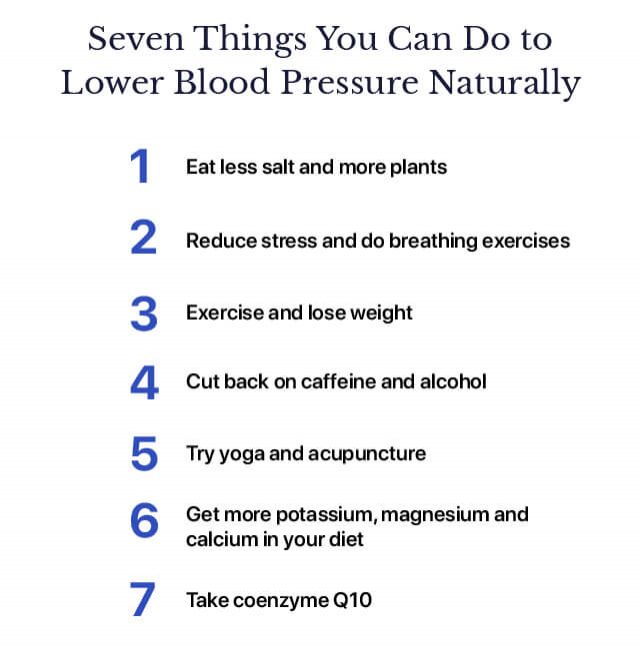
This image is property of www.drugwatch.com.
